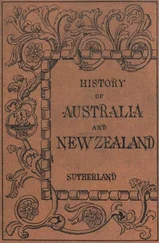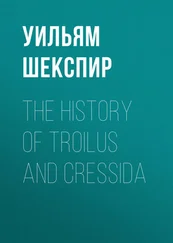Young Caesar sought a refuge in Rhodes, in the name of studying abroad. On the way to Rhodes, the ship that he was aboard was seized by Cilician pirates in 75 B.C. Pompey’s massive counter-pirate campaign was still 10 years away, so piracy was still rampant in the area. When the pirates demanded a ransom of 20 talents, the equivalent of annual salaries for 4,300 soldiers at the time, Caesar began to laugh loudly. If he could not afford to pay the ransom, he would have been sold into slavery or been killed. In this midst of this crisis, Caesar came up with a clever ruse. Hoping to buy time, he offered to pay 50 talents, implying that he was worth a much higher ransom if only the pirates could be patient.
The pirates were fascinated by his offer. They thought that there would be nothing to lose for them, except a delay in ransom payment, and besides, they could always execute him if it turned out he wasn’t worth keeping alive. Caesar sent his followers to raise money while he was held hostage with his two servants. The pirates, who believed that they held a son of a wealthy Roman nobleman, were excited about the enormous ransom. During his captivity, Caesar laughingly told them he would have them all crucified once he was released – thinking this a good joke, the pirates laughed along with him.
For 40 days, until his followers came back with the ransom that he had offered, he stalled for time and lived among the pirates. As soon as he paid it and was set free, he rushed to nearby Miletus to prepare attacks on the pirates. Sailing from Miletus, he raided the pirates’ base and captured nearly all of them. Entrusted by the governor of Asia Minor to deal with the pirates, he crucified all of them, as he had promised. After two years in Rhodes, Caesar came back to Roman politics. Caesar’s support for granting imperium to his rival Pompey might have been derived from his bitter firsthand experience with the pirates.
Chapter 3
Mediterranean Pirates After
the Collapse of the Roman Empire
Introduction
This chapter deals with Saracen pirates who dominated the Mediterranean after the collapse of the West Roman Empire, commonly referred to as the Roman Empire. But before discussing the Saracen pirates who looted the Mediterranean Sea off the Italian Peninsula while Muslims ruled the Middle and Near East and North Africa, we first need to know about the late Roman Empire and its decline. Moving straight into the era of Muslims and Saracen pirates without understating the late Roman Empire would only provide a partial understanding of what led to their rise.
Any particular historical event is a result of the interaction of numerous complicated factors throughout a long history. The appearance of Saracen pirates is also a historical event brought by a power vacuum after the collapse of the Roman Empire. The Roman Empire is often considered to be synonymous with ancient European history itself.
Saracen pirates were totally different in nature from previous Mediterranean pirates. Piracy before the collapse of the Roman Empire was an internal problem of the Roman Empire, and in many cases, these were Christian pirates attacking other Christians. However, in the Mediterranean which came under Muslim control, Muslims from North Africa attacked the Italian Peninsula and the Christians under the rule of the Byzantine Empire.
The Decline and Fall of the Roman Empire
The brilliant history of the Roman Empire over a millennium ended with the fall of the Western Roman Empire in 476. The Eastern Roman Empire, based in the capital of Constantinople, would continue to exist until the city was captured by Osman Turks in 1453. The Byzantine Empire, built on the Greek Orthodox religion and Byzantine culture, was a totally different empire from the Western Roman Empire. In this sense, the Roman Empire is widely considered to have ended with the fall of the Western Roman Empire.
The territory of the Roman Empire at its height extended to Spain in the west, Asia Minor and the Near East in the east, and North Africa in the south. Extending north into modern-day Europe, the Rhine River to the west and the Danube River to the east had served as the frontlines of the empire over several hundred years. Romans built military posts along the frontlines and stationed troops to defend them. The frontlines were not only defense lines, but also boundary lines which divided the land between what Romans considered ‘civilization’ and the lands inhabited by tribal peoples. The Roman Empire was a civilized society where people enjoyed economic prosperity, academics, and arts flourished, and the value of individuals under the rule of law was highly regarded. By a stark contrast, beyond the frontlines, there was a barbaric world which had remained tribal states and eked out a living from aggressive actions and sackings.
For Romans, it was vital to formulate laws and institutions which could be universally applied to various nations with different cultures, ethnicity and religions under their rule. Besides, it was also essential to build traffic networks to connect Rome with its provinces across several continents. The Roman roads, built initially for military purposes, enabled the rule of the emperor to reach every corner of its territory, and at the same time, any event that happened across the provinces could be reported swiftly to the emperor in Rome. As the saying goes: “all roads lead to Rome.” The Roman roads operated like a body’s nervous system, allowing troops to move swiftly in the event of rebellions in the provinces or the aggressive actions of barbarians across the frontlines.
In the period of the “five good emperors” (96–180), the Roman Empire enjoyed its most majestic days. The political situation remained stable, the economy prospered, and the empire’s territorial reach was at its height. The empire’s defenses were so secure that barbarians could not attempt to cross the frontlines. The values of Rome were regarded as universal. The era of Pax Romana, which meant peace or order established by Romans, was at hand.
Following a period of peace and expansion during the rule of the five good emperors, the Roman Empire entered its so-called ‘Crisis of the Third Century.’ After the death of Emperor Marcus Aurelius (120–180), a number of unqualified rulers ascended to the throne. Throughout this period, several proclaimed themselves emperor simultaneously, setting off a series of assassinations. Concurrently, rebellions in Palmyra (an ancient city in what is now Syria) and Gaul (mainly modern-day France and Belgium) broke out. The Roman Empire was challenged by the largest crisis it had faced since its foundation. Meanwhile, the spirit of noblesse oblige of the ruling class, along with their open-mindedness, gradually faded away, and the economy was on the wane. As the wealth inequality grew, social conflicts intensified. Romans were no longer able to maintain adequate military forces to defend the frontlines, while barbarian aggression was growing.
At the same time, a new civilization was born at the frontier of the empire. The barbarians who had looted and pillaged the territories of the Roman Empire grew more civilized as they integrated advanced Roman culture and technologies through wars with Romans. The barbarians increased the intensity and frequency of anti-Roman aggression, while evolving into tribal states with systemic ruling organizations and military forces.
It is not easy to pinpoint exactly when the decline of the Roman Empire started. However, what is apparent is that the Roman Empire, after the Crisis of the Third Century, started to decline rapidly in the late fourth century. The Roman Empire in decay was incapable of financing military forces to defend its huge frontlines. The massive provinces across several continents had been a symbol of expansion of the Roman Empire, but their defense became an extremely heavy burden for the Roman Empire as it fell into decline. As a consequence, the barbaric mercenaries who had lived in the Roman territories took the place of Romans. This meant that the national defense of Rome itself was actually handed over to the tribes that had been its enemies.












